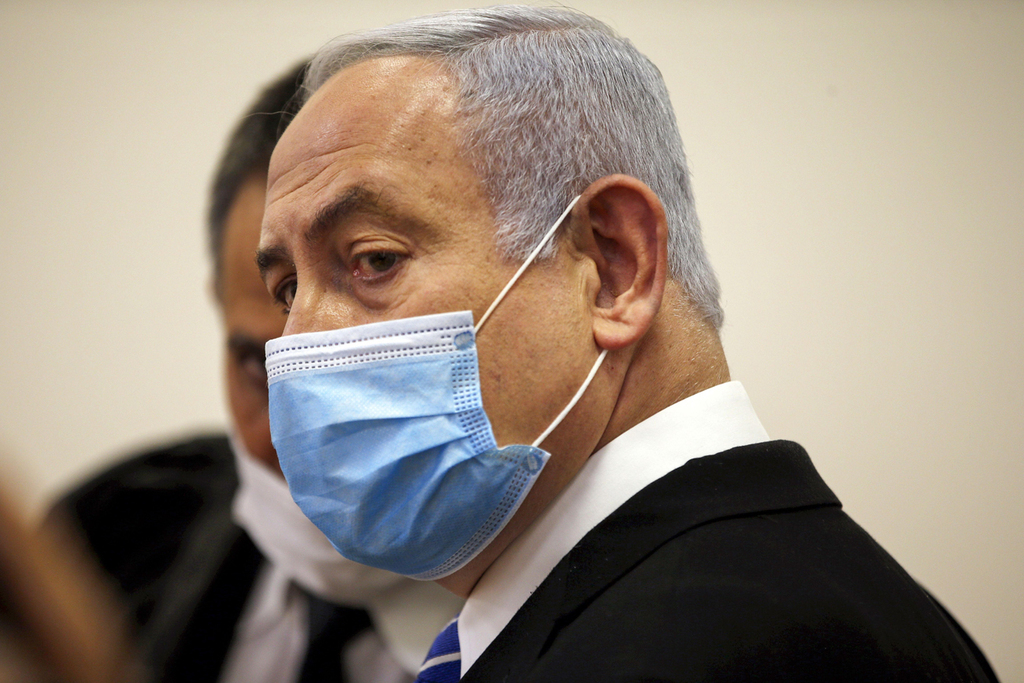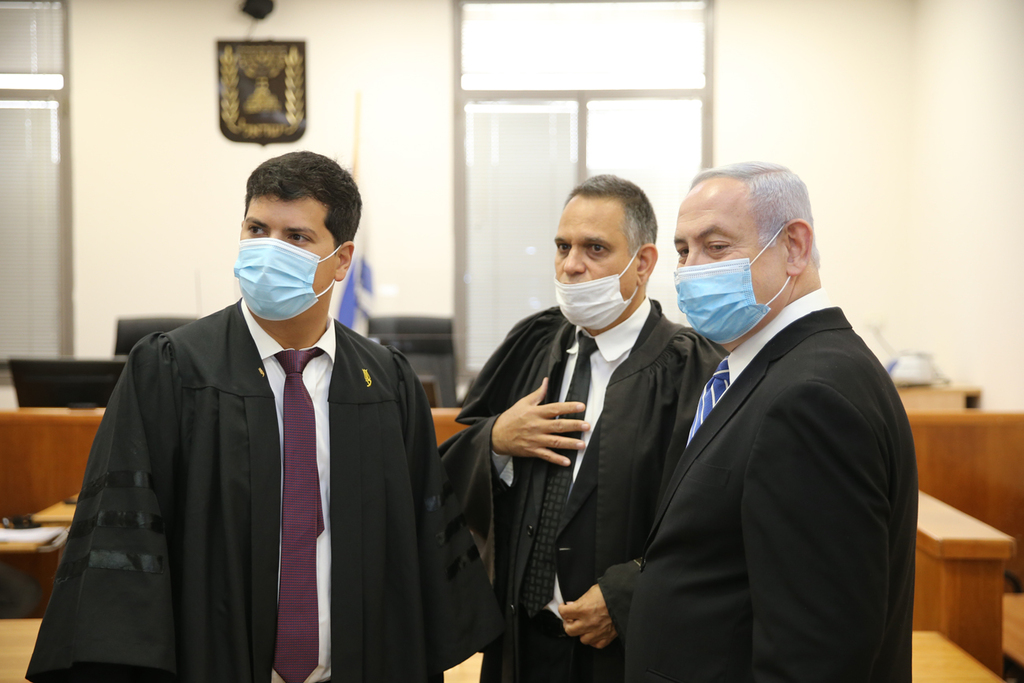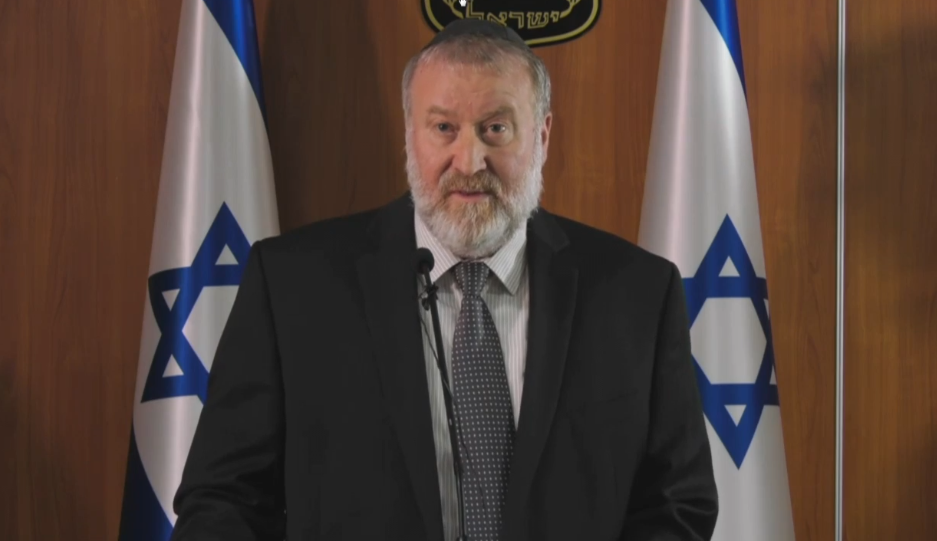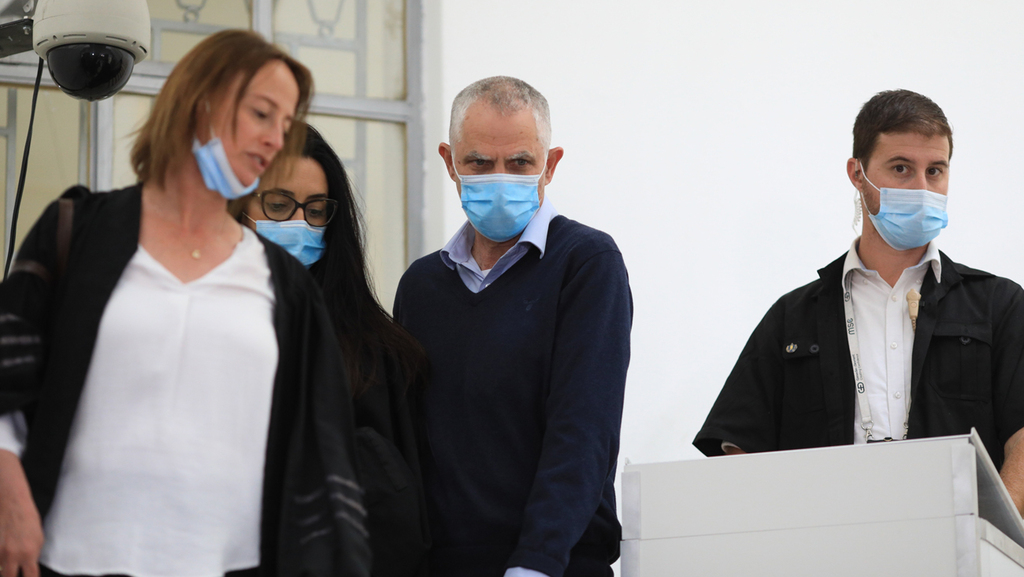Prime Minister Benjamin Netanyahu on Wednesday made an urgent request to Jerusalem District Court to extend the deadline for his lawyers' response to an updated indictment against him for corruption.
The prime minister's defense counsel argued that Netanyahu needs a 30-day extension to prepare a response to the amended indictment filed against him Sunday in Case 4000.
4 View gallery


Prime Minister Benjamin Netanyahu in Jerusalem District Court in May 2020
(Photo: AFP)
The case, which is one of three against him, accuses the prime minister of demanding positive media coverage from then-Bezeq chief Shaul Elovitch on the Walla website owned by the telecom giant in return for beneficial regulatory measures.
The amended indictment was filed Sunday in accordance with a court order to remove all mentions of "the prime minister and his family" and refer to just the prime minister.
The request for an extension was joined by the other defendants in the case, Elovitch and his wife Iris, as well as Arnon Mozes, the Ynet publisher who is charged in the separate Case 2000.
According to the charges pertaining to Case 2000, Netanyahu and Mozes allegedly discussed mutual assistance to promote one another's interests during private meetings that began in 2009 and lasted for several years, Netanyahu is charged with fraud and breach of trust and Mozes with bribery.
Netanyahu denies all charges against him, saying he is the victim of a witch hunt orchestrated by a hostile media, police and prosecutors.
In the request submitted Wednesday, Netanyahu's defense attorneys Boaz Ben Tzur and Amit Hadad also said that they are examining the possibility that the amendment to the indictment now allows the prime minister to be granted parliamentary immunity.
"It should be noted that we are looking into the recognized legal significance in amending the indictment as it pertains to the immunity law. The applicant reserves the right to all claims on this issue," they wrote.
4 View gallery


Benjamin Netanyahu, right, in court with his legal team in May 2020
(Photo: Amit Shabi)
A year ago, Netanyahu asked the Knesset to discuss him receiving parliamentary immunity, and the Knesset Arrangements Committee, which manages parliamentary functioning during transitional periods, even set up a panel to discuss the issue.
But the prime minister announced that he was dropping the request in the face of significant public criticism.
Netanyahu's attorneys also said in Wednesday's request that four members of the prime minister's defense team were currently in solitary confinement due to exposure to the coronavirus.
"The defendants have just a few working days left to prepare a response to the indictment, which includes new details that were hitherto not presented to them. We also point out that the State of Israel is at present in lockdown," the lawyers said.
"In the past week, in accordance with Health Ministry guidelines, [the defense team] has been working with a limited staff of 50%. Following the government's decision [Tuesday] night, this format will be further reduced in light of the tightening of restrictions and the imposition of a full closure on the country, and it will be even more difficult for the defense to prepare its response," the wrote.
The next hearing in Netanyahu's trial was expected to take place next Wednesday, on January 13. The prime minister has asked that he not have to answer to the indictment and is instead seeking to halt the legal proceedings on the grounds that Attorney General Avichai Mandelblit did not provide sufficient approval to launch the investigation against him at the end of 2016.
4 View gallery


Attorney General Avichai Mandelblit discusses his decision to indict Benjamin Netanyahu, November 2019
(Photo: Government Press Office)
In response to a request from Netanyahu’s lawyers for more details, prosecutors released a letter Sunday alleging there had been 315 incidents of Walla being requested to make its coverage more favorable for Netanyahu and his family. They said there were indications that Netanyahu was personally involved in 150 of those incidents.
It said the requests included giving more time or prominence to positive articles about Netanyahu and his family, changing headlines and lowering or even removing unfavorable stories. It also included alleged requests for negative coverage of Netanyahu’s rivals.
On Jan. 17-19, 2013, for instance, it said a Netanyahu associate persuaded Elovitch to publish stories saying that the wife of Naftali Bennett, head of rival Yamina party, worked in a non-kosher restaurant.
Several weeks later, Netanyahu, through the same associate, allegedly pressed Walla to remove critical articles about a lacy dress his wife had worn to the swearing-in of the new parliament and replace it with favorable reviews. The site consented to both requests, it said.
On another occasion, Elovitch, at Netanyahu's request, allegedly ordered Walla to halt a live broadcast of a rally by Netanyahu's opponents during the country's 2015 election campaign.
The Associated Press contributed to this report


